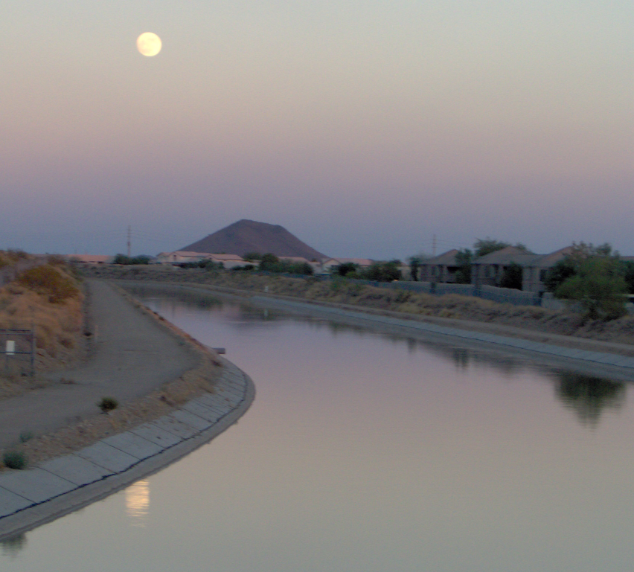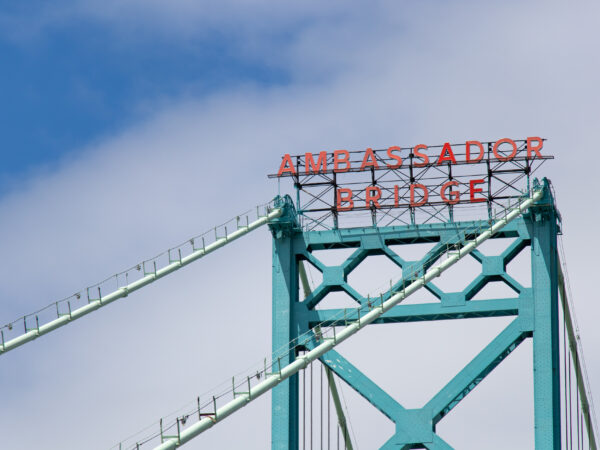
By Dave Rosenthal from Great Lakes Today
States surrounding the Great Lakes have a recurring nightmare about proposals to siphon off water for parched areas in U.S. or other countries.
So they might be staggered by suggestions from NASA scientist Jay Famiglietti, who said a water pipeline from the lakes to cities like Phoenix was “part of our future.”

Phoenix City Hall, courtesy of Azwatchdog
Famiglietti, a hydrologist and senior water scientist at the NASA Jet Propulsion Laboratory, was in Cleveland recently for a lecture. In the interview with Ideas, he said that “from a quantity perspective you might imagine that there’s a giant bullseye that can be seen from space that’s sitting above the Great Lakes. Meaning: It’s a target area in a sense for the rest of the country.
“Because there’s so much fresh water, you can imagine that 50 years from now … there might actually be a pipeline that brings water from the Great Lakes to Phoenix. I think that’s part of our future.”
Famiglietti said such initiatives are needed to address a global water shortage.

Jay Famiglietti, courtesy of jayfamiglietti.com
“I think the global water crisis is far worse than most people imagine,” he said, “because it includes both the water quality and water quantity components, and when you put those two together, I’m sorry to say it’s almost an unsolvable problem.
“And so what I like to tell people is not that we need to bury our heads, but that we need to learn how to manage our way through. We’re not going to end it, but we can manage our way through.”
States surrounding the Great Lakes have jealously guarded the vast water resource. After all, the lakes hold 20 percent of the world’s fresh water, and those states (and the government of Canada) realize the value in a world that is increasingly faced with shortages.
Water diversion issues have popped up recently — but on a much smaller scale.
When a Wisconsin town that lies just outside the Great Lakes basin asked to draw water from Lake Michigan, it sparked a debate that is still resonating. Waukesha eventually received permission from the eight Great Lakes states — in part because the town’s water was contaminated by radium.
But a group of local officials from the Great Lakes region has appealed that decision.




